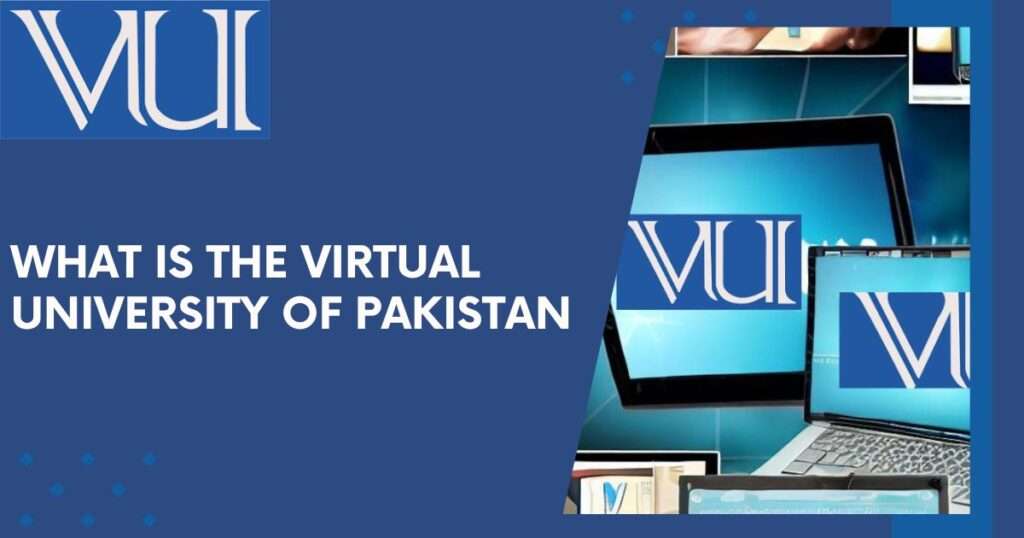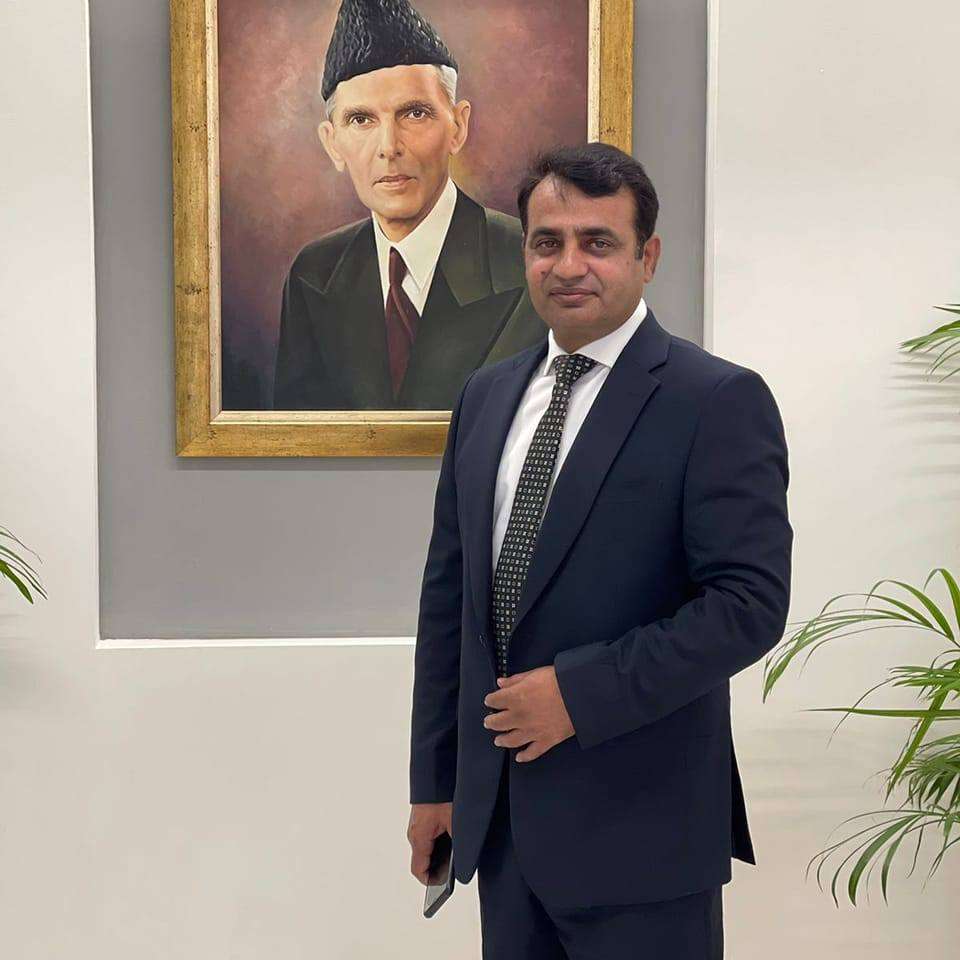
The virtual university of Pakistan is the first online/distance learning university in Pakistan. It is a higher education degree-awarding university. The Virtual University offers diverse graduate and undergraduate programs in computer science, social science, health science, and management.
Since its inception in 2002, the University has experienced exponential expansion across various aspects. It presents a vast network of campuses/study centers (exceeding 200), a substantial student body, esteemed faculty members, diverse academic programs, public research output, and extensive public engagement. Within a brief span, the University has achieved remarkable enrollment numbers of students and successfully graduated numerous students, all while significantly contributing to the country’s educational landscape and socioeconomic progress.
I. Historical Perspective of virtual university
Established in 2002 by the government, the Virtual University of Pakistan (VUP) was created to address capacity and access issues using technology. It aimed to provide high-quality education at affordable rates across the country.
The idea of establishing a virtual university was initially proposed in the Information Technology Policy of 1998–99, followed by supported pre-feasibility and full feasibility studies in 2000. The study recommended the establishment of a “virtual IT university” due to the growing demands in the booming IT sector and barriers to equitable higher education provision. In late 2001, the approved PKR one billion project (USD 20 million) envisioned delivering video lectures through broadcast television and providing academic support online.
The project team assembled in October 2001, and within six months, the University opened its virtual doors, admitting the first cohort of students to a bachelor’s program in computer science in March 2002. The establishment of an online university marked a significant milestone in Pakistan’s academic landscape, offering numerous degree programs in sciences, Computer Science, Management Sciences, Education, Social Sciences, and Humanities, with over 480,000 enrolled students.
II. Mode of Education
The basic mode of education at virtual university is online and VU delivers its education through the internet and recorded video lectures. This method is known as the asynchronous method of education. In this method, the students can interact directly with their teachers through the interactive mode of the Virtual Learning Management System (VULMS).
III. Features of the Virtual University of Pakistan
The Virtual University of Pakistan is a well-known university that provides online education and online learning opportunities to students around Pakistan. Here are some of the important aspects of Pakistan’s Virtual University:
1. Online Education
The Virtual University offers a completely online learning environment in which students can access their courses and study materials from any location with an internet connection. This tool provides students with flexibility and convenience if they have other obligations or prefer to study in their place.
The virtual university employs a powerful Learning Management System that acts as a centralized center for students to access course materials, participate in discussions, submit assignments, take online quizzes, and interact with lecturers and fellow students by using their student id and password. The LMS guarantees that online learning is structured and well-organized.
3. Accredited Degree Programs
Virtual University offers a diverse choice of undergraduate, graduate, and doctoral degree programs. The Higher Education Commission (HEC) of Pakistan has recognized these programs. This ensures VU’s reputation and acceptance of its degree worth in the job market, as well as acceptance of traditional universities’ degree value in Pakistan.
4. Experienced Faculty
The institution features a faculty team of skilled and competent experts in their respective specialties. These teachers guide, support, and provide feedback to students throughout their academic careers.
5. Interactive Online Lectures
The Virtual University provides online lectures via video-based tutorials, which are meant to engage students and encourage effective learning. These lectures are presented by experienced faculty members and cover the course’s main concepts and subjects.
6. Digital Resources
The university gives its students access to digital resources, which includes studying books in pdf format. The institution gives its students free books every semester, and students may easily download them on their devices for free. The VU provides an open courseware collection so that students can gain knowledge outside of their specialties.
7. Assessment and Evaluation
To measure students’ learning progress, Virtual University adopts a fair and transparent assessment system. It consists of online quizzes, assignments, graded discussion boards, and midterm and final exams held at VU’s own designated exam centers. This guarantees that students’ knowledge and comprehension of course material are correctly assessed.
To aid students throughout their academic journey with the virtual university, the university provides extensive student support services. This comprises academic counseling with teachers, course selection advice, technological help, access to the registrar department, and access to the finance departments, all with a single click to facilitate student contact and collaboration.
9. Quality Assurance
Quality assurance is a major feature of Virtual University’s instructional programs. It adheres to HEC’s strong academic standards, refreshes course content regularly to keep it relevant, and guarantees that students receive a high-quality learning experience.
10. TV channels
The university provides the live lecture through its 4 TV channels (VTV1…VTV4)
11. FM radio channel
The university has an FM radio channel to communicate with its students and facilitate their students.
12. VU Own Software House
The virtual university has its own software house to build custom software and train its students for the industry.
IV. Why Join The Virtual University
Over the course of two decades, the virtual University has generated 100,000 graduates who are not only beneficial to the national economy but also beneficial to the individual. In the spring semester of 2023 of the virtual university total number of enrolled students is 130,000.
1. Online Learning Platforms available 24/7
Virtual university online learning tools are available 24 hours a day, seven days a week, and students can access all of them at any time, including a Virtual Learning management system LMS, a VU YouTube channel that contains all of the video lectures, open courseware, and VU’s own four TV channels (VTV1…VTV4) that all students can access from anywhere in Pakistan and around the world.
More than 200 campuses in Pakistan serve students and span nearly every city and tehsil in the country. It is a huge support to students’ services. The university has opened its study nearby your residence.
3. Flexible Study Schedule
Pakistan’s virtual university allows students to learn at their own pace and on their timetable. This is especially advantageous for people who work full-time or have other social and familial obligations that prevent them from attending traditional classes.
Assume a student is working and can easily study with his or her employment, and the student can create their own date sheet at their availability of time, date, and place. If a student lives in Pakistan and unexpectedly travels overseas, he can follow the same method and continue his studies as he did in Pakistan.
4. Variety of Courses
The virtual university provides a diverse range of undergraduate, graduate, MS, diploma, and special certificate programs. The VU also offers free short courses through Digiskill.pk in collaboration with Ignite.
5. Economic Fee Structure
Tuition and admissions fees for the virtual university are much lower than those of traditional universities and Allama Iqbal University. The average semester fee for BS students is Rs. 17,000, which they divide into five or six installments. Students can now obtain a high-quality education at a fraction of the cost.
Students can apply for scholarships at the virtual university. Two types of scholarships virtual university offer the first one is a need-based scholarship for deserving students and the second one is merit base scholarship for brilliant students who performed excellently in their academic careers. Other than that, scholarships virtual university also offers; a scholarship for Shuhda’s children Syeda Mubarika Begum scholarship.
50% fee waiver for disabled students.
9. Repeated Access to Course Materials
Video presentations, unlike traditional lecturing, can be watched and revisited as needed. If a student does not fully get part of the information presented in a video lecture, they can re-watch it. Students can use lecture videos as an additional resource to assist them in completing homework.
10. Improved technology skills
While learning online, students become acquainted with many forms of technology, such as web-conferencing software and online collaboration tools.
11. Quality Assurance of virtual university
Pakistan’s Higher Education Commission recently issued a guideline for online undergraduate programs. The Virtual University of Pakistan has always adhered to stringent quality assurance standards. To meet the HEC’s criteria and ensure the quality of its academic programs, the Virtual University formed the Directorate of Quality Enhancement (DQE) in 2010.
The Virtual University has adopted several quality assurance and enhancement techniques since its inception in 2002. The creation of the Quality Enhancement Cell (QEC) has aided the university’s ongoing efforts to improve the quality of its programs, procedures, and services. More information about the QEC can be found at https://qec.vu.edu.pk
V. Alumni Success Stories of Virtual University
Zulfiqar Ali
Masters-MBA-Exec. (72 Cr. Hrs. / 2 Years
Batch: Fall 2015 – Spring 2017
He has completed his graduate degree from the virtual university and now he is serving as Reginal Manager at GlaxoSmithKline a medicine company.

Waqas Younis
Study Program: Masters-MBA-Exec. (72 Cr. Hrs. / 2 Years
Batch: Fall 2015- Spring 2017
He has completed his graduate degree from the virtual university and now he is serving as Reginal Manager at HBL Bank in the credit card department.

Dilawer Ali
Study Program: BS Computer Science
Batch: Fall 2012- Spring 2016
He has completed his graduate degree from the virtual university in computer science and now he is serving as Project Manager at Folio3 IT company which is US based company in Pakistan.

Iram Ghafoor
Study Program: M.Sc. Mass Communication
Batch: Spring 2017 – Fall 2018
I graduated from VU’s master’s program in mass communication. Throughout my studies, VU provided me with 100% merit-based scholarships, which came in handy when I wasn’t financially independent. The most major influence VU had on me was connecting me to the online world, which led me to begin freelancing. Without VU, I would still be in financial trouble. VU not only assisted me in completing my degree but also gave me vital exposure to the digital world, helping me to establish myself in the freelance market. It has been a true blessing in my academic and professional endeavors.

Muhammad Usama Baig
Study Program: BS Software Engineering
Batch: Fall 2014 – Spring 2018
In Lahore, I work as a Senior Software Engineer for a well-known software business. VU awarded me a Bachelor of Science in Software Engineering. The high quality of lectures at VU, combined with the freedom to study at my own pace and convenience, enabled me to pursue internships and work while studying. This was beneficial to both my education and my career. Based on my own experience, I strongly suggest VU to other students.

VI. Frequently Asked Questions (FAQs)
1. Is a Virtual University degree valid?
Yes, Virtual University degrees are valid and recognized by the Higher Education Commission (HEC) of Pakistan.
2. What is the rank of a Virtual University in Pakistan?
The rank of the Virtual University in Pakistan may vary depending on the ranking system used, but it is considered one of the top distance-learning universities in Pakistan.
3. What are the goals of a Virtual University?
The goals of Virtual University include providing quality education through distance learning, promoting e-learning technologies, and reaching out to a wider student population.
4. Is VU recognized by HEC?
Yes, Virtual University is recognized by the Higher Education Commission (HEC) of Pakistan.
5. Is VU a good university?
Virtual University is well-regarded as a reputable institution offering distance learning programs, and it is considered a good university by many.
